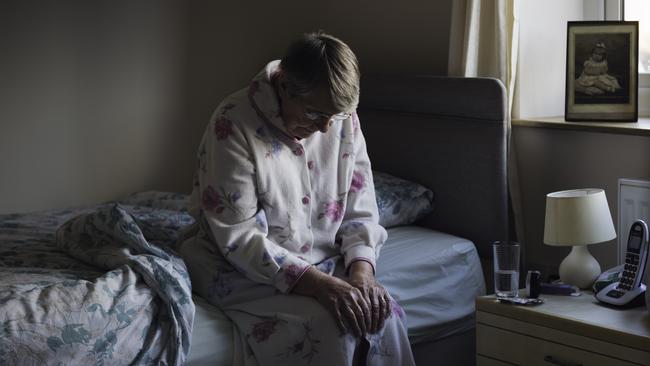
The baby boomers have changed the nation at every age level. Next year, the oldest of them will turn 80, so a looming area of change will be the choice between home and residential aged care.
A major step in that change came on “Mad Thursday” last month, when among the 30 or so bills that were rushed through the Senate without debate was home care for baby boomers.
Already I am receiving alerts that the well-intentioned but rushed legislation, supported by both the ALP and the Coalition, will have unforeseen repercussions.

The promoters of the legislation clearly believe that home care should be the province of large institutions, usually not for profit, providing a level of base institutional care transferred to the home.
Many baby boomers will look for a better standard of home care but will find that the politicians in their haste look set to eliminate a large number of small personal providers who might provide premium home care.
At the moment, anger among the small providers is white-hot, but that anger will soon spread to many baby boomers and their families.
Although the rushed legislation makes being a small provider uneconomic, it correctly triggers expenditure sharing between governments and baby boomer recipients. But it’s a scheme designed for the current major users of home care – pensioners – rather than self-funded retirees. And there is a backlog of potential participants.
The legislation is so complex that trying to understand repercussions is a nightmare, so I nervously enter this field of commentary knowing there will be many different viewpoints.
Small providers sound the alarm
My first alert that something was wrong came from an excellent small home care provider who came to me, almost weeping, saying that the politicians and public servants had targeted the small operators who have about a quarter of the total home care market.
The large, mass product home care providers are the winners. The small operators have to become large or get out.
Proper debate in the Senate might have uncovered this and explored solutions.
Another danger alert came via the Stewart Brown aged care consulting group, who support the thrust of the legislation and estimate, via a survey, that the measures threaten to put almost 70 per cent of current operators into the red.
Announcements on fee levels, due soon, will reduce that figure, but to have politicians without debate passing such dangerous legislation as the baby boomers turn 80 ignores the lessons of history since 1945.
Quite rightly, the legislation requires that affluent baby boomers pay part of their home care costs. The legislation looks appealing to baby boomers because it caps fees, but as we have seen so often in other parts of the medical industry, standard fees do not always cover higher costs and service then suffers.

Prior to the legislation, the regulators imposed costly requirements for a complex administrative structure to be embraced by all home care providers, plus quarterly accounts. Such structures were obviously much easier for larger operators to provide because the imposed administrative costs can be spread over more people.
Home care packages
The home care services are divided into areas of service, which are called “packages”. The legislation determines that the maximum cost of these packages and introduces means-tested contributions.
But in assessing the capped price level of the “packages” the allowed management content falls from 28 to 10 per cent – again designed to increase the market share of the larger providers who, in theory, can gain management economies of scale.
As yet we don’t know the level of the capped prices, but clearly unless the capped prices are high, small operators need to gain lots more revenue by being larger.
The larger operators aim for a standard product, but the level of their in-home service will be closely related to their ability to manage large numbers of remotely working people. Managing a vast workforce operating in peoples’ homes requires incredible skills.
The larger groups will need to maintain and/or acquire those skills, but the restrictions on their management content will also make it harder for them.

For smaller groups, becoming larger can be hazardous because it requires different skills. A more carefully constructed set of rules would have taken this into account.
To be fair to the designers of legislation, many small operators provide substandard service, so the legislation aims to force them to do better, but in the process it makes it uneconomic for superior individual care that smaller providers can offer baby boomers.
Aged care capped prices
The rushed legislation, in aiming to provide a standard level of care at a capped set of prices works reasonably well in the current situation where around 95 per cent of the home care users are also on the aged pension.
But a small operator – and perhaps some of the larger ones – may want to offer baby boomers and their families a premium product. To do that, they must go into a crazy style of black market and offer a service that conceals the fact that they are in fact charging above the cap.

If the provider is not very careful, the baby boomer and their families may suddenly find they get no government money at all and the cost of home care skyrockets.
In general medical practice there is a bulk billing service for pensioners (often hard to get) followed by graduated levels of service and fees but always a level of base government refunds.
Premium home care for baby boomers without any government base assistance can be very expensive, and the baby boomers will need to have a large amount of money to afford it.
The current game encourages baby boomers to transfer money to their children, but inheritance hungry children do not always behave in the way their parents expect.
It's time to put the rushed legislation behind us and start working on a new chapter.






